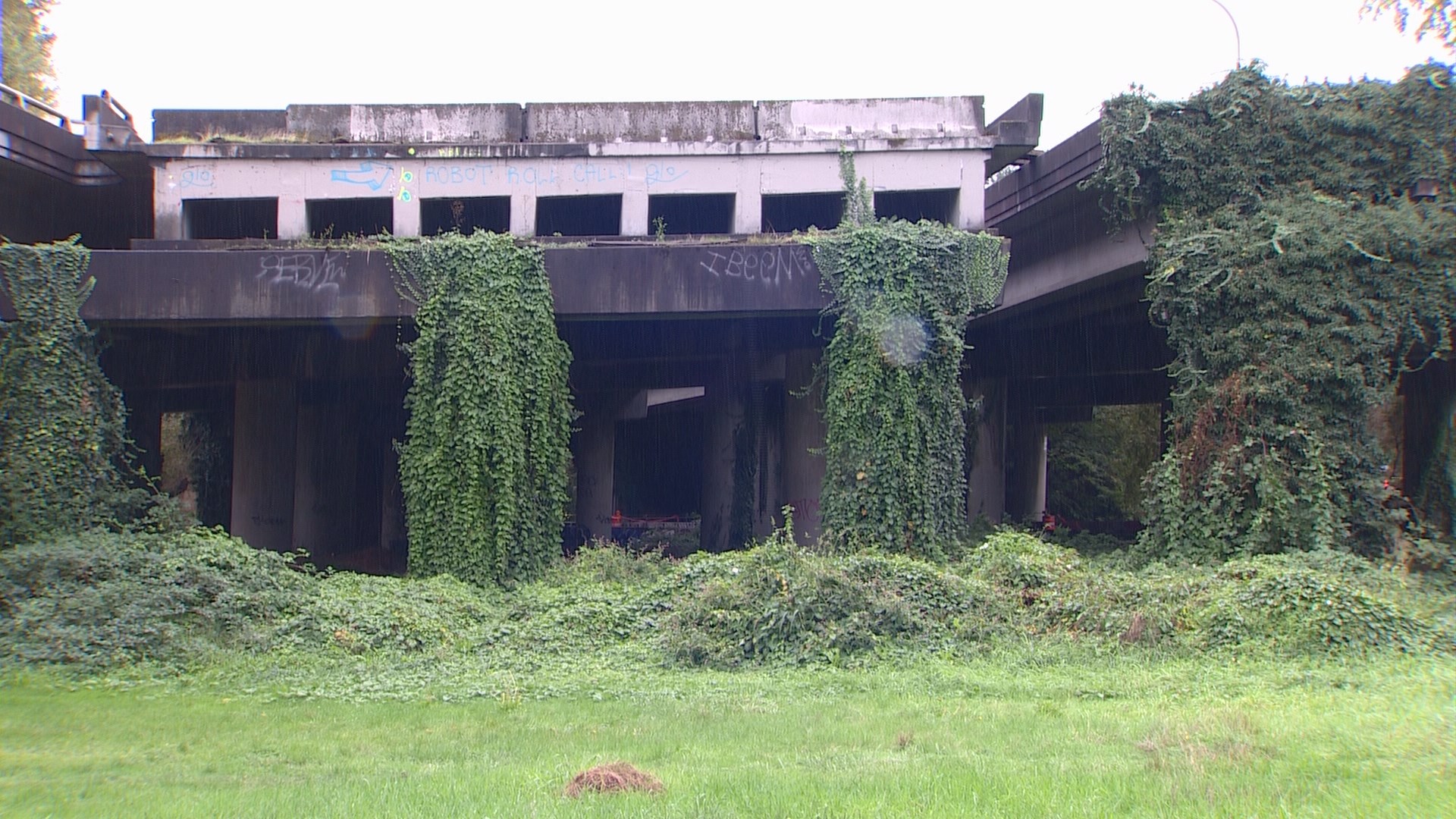SEATTLE -- They've stood as landmarks and monuments to another time in Seattle's history.
"This was the first place that the citizens of Seattle said, 'We've had enough freeways, thank you very much,'" said Paige Miller, Executive Director of the Arboretum Foundation.
Miller attended an event at one of the ramps on Wednesday afternoon.
"(People) literally stood in front of the bulldozers, and said you are not going to build this freeway through the Arboretum," Miller said.
She's referencing that time in the late 60s and early 70s, when city planners began construction on the R.H. Thomson Expressway. Crews built the ramps and were ready for the next phase, which involved plowing through the Washington Park area and carving out a large swath through what is now known as Martin Luther King Jr. Way.
The freeway would have connected Lake City and South Seattle, as a bypass around Interstate 5. That was before a civic uprising, which led to the project's demise.
The ramps were on both sides of the project. They were torn down years ago on the west side of the planned roadway, near the stadiums. But the ramps in the Arboretum have stayed. They've been used by more divers than drivers, and have been a popular spot during the summer months.
The state said however, now is the time to finally remove them. It will begin doing so Friday, as it starts the next phase of the 520 replacement project. The bridge will be closed to all traffic this weekend.
According to WSDOT, the West Approach will be ready for drivers by 2017.
The irony of the entire situation is that the mark of a failed transportation project will be torn down to make way for a project that the state isn't sure it will finish. WSDOT said there is still a $1.5 billion shortfall for the rest of the project, from Montlake to Interstate 5.
State Representative Judy Clibborn, (D) Mercer Island, is the chair for the House Transportation Committee and reiterated on Wednesday that there is no easy answer.
"I have a bet we can get the funding, not before I leave the legislature, but maybe before I die," she said with a laugh.
"Even if they don't ever finish it, which I still think is a possibility, it will still connect with the University of Washington," said Miller, who calls the demolition announcement a wonderful day for the future of the Arboretum.
She said she'll be taking a piece of the ramp's concrete for a different landmark: a memorial to remind people of that time when Seattle's residents said no to more freeways.


